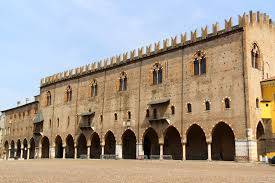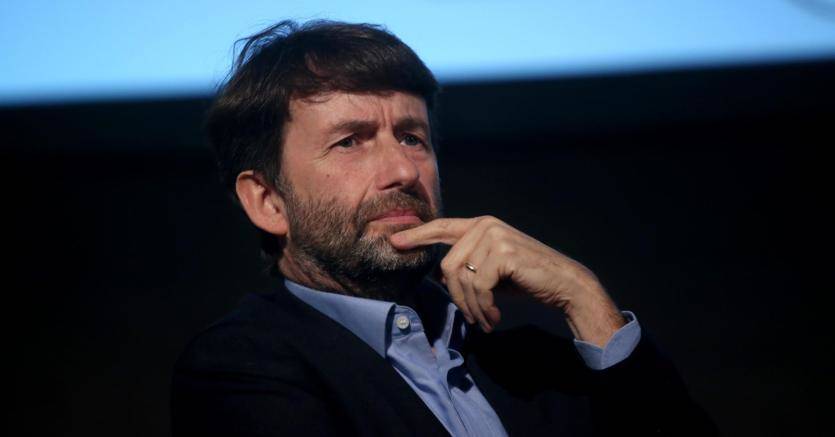Court Ruling Gives Italian Culture a Black Eye
The last thing Italy needs is to give its cultural heritage a black eye, or, as Totti's countless fans might put it, an "autogol," whereby you score your own goal. But that is just what has happened. When Culture Minister Dario Franceschini opened the directorship of 32 of Italy's top museums to international, as well as Italian, art experts with managerial experience, there were huzzahs worldwide. As a direct consequence of Franceschini's reform and other measures taken under his stewardship, attendance at museums, including those with relatively few visitors in the past, has soared.
On May 24, however, the Lazio administrative court tribunale, TAR, cancelled six of Franceschini's appointments on grounds that these directors are not Italian citizens. Those annulled by TAR were Martina Bagnoli, head of the Estensi Galleries of Modena; Eva Degl'Innocenti, National Archaeological Museum of Taranto; Carmelo Malacrino, National Archaeological Museum of Reggio Calabria; Paolo Giulierini, National Archaeological Museum of Naples; and Peter Assmann, Palazzo Ducale of Mantua. The case against the non-Italian directors was brought to the tribunal by protesting Italian art experts who had themselves applied for the posts.
Under Franceschini, the Culture Ministry issued a call for "maximum experts in the field of museum management, subject to rigid procedures of selection by a commission of experts of clear fame and highest scientific level." This reform was greeted with enthusiasm worldwide, and among the widely praised appointees was Eike Schmidt, the prestigious German art historian who has headed the Uffizi Galleries of Florence since 2015. Schmidt, whose appointment has not yet been cancelled, was asked if the TAR decision was distressing. "Frankly, I was far more shocked when the TAR allowed the fake 'gladiators' back into the Colosseum," he replied. "That seemed like a comedy sketch but instead was reality." But if the reforms are blocked, Schmidt acknowledged, "It will be a disaster."
Franceschini's reform gave 32 museums full autonomy for scientific studies, organization, finance and accounting. On Aug. 18, 2015, he announced the names of the first 20 new directors of these museums. Seven were non-Italians even though not all his appointees are actually "foreign" citizens, but had worked abroad for many years. Bagnoli, for instance, grew up in Italy, before studying at Cambridge University in the UK and at Johns Hopkins in the US, and becoming head of the Baltimore Museum in Maryland. Degl'Innocenti was born in Pistoia and was graduated from Pisa before working at museums in Bretagna and Paris.
On learning of last week's TAR decision, Minister Franceschini gasped, literally, "There are no words", before adding, "What a figuraccia for Italy" (translates to "this cuts a really bad figure for Italy). Along with an irate Franceschini, the former -- and probably future -- Premier Matteo Renzi was furious at the TAR. But the game is far from over, for, speaking for the government, Mauro Guerra, member of Parliament for Renzi's Partito Democratico (PD), has requested the State Council, to which the TAR responds, to suspend the sentence. An audience on the question is slated for June 15.
TAR itself has come under severe criticism for other of its actions. Besides readmitting the fake gladiators into the Colosseum area, where they have been accused of hectoring tourists, the TAR rejected a Venetian plea to disallow gigantic cruise ships from entering into lagoon waters. It also blocked funding for the restructuring Bari's historic Piccinni Theater and for maintaining the city's public fountains. In May 2016 TAR suspended restoration work on Andrea Palladio's Ponte Vecchio, also known as the Ponte degli Alpini, built at Bassano del Grappa over the Brenta River in in 1569.
For its part, a key TAR defense is that the selection of candidates took part behind closed doors, and, for candidates from as far away as Australia, via Skype, rather than in public, where outsiders could evaluate the fairness of the process. The authoritative art historian Tomaso Montanari, who heads a group calling itself "Emergenza Cultura," says that the reform under Franceschini "was done in a rush and was technically poor."
In addition, as other observers are pointing out, the TAR is non-political but must ensure that the laws are correctly observed. "The procedures for selection were poor in several points," the TAR pointed out. Besides the selection behind closed doors, no system of giving points to candidates appeared.
An amendment to Franceschini's museum reform was being presented May 31 in Parliament as part of the very complex financial maneuver. Whether or not this will save the day is not clear. Meantime a nervous Ministry must select 14 candidates to manage nothing less than the Colosseum -- and among those under consideration are a number of non-Italians.






































i-Italy
Facebook
Google+
This work may not be reproduced, in whole or in part, without prior written permission.
Questo lavoro non può essere riprodotto, in tutto o in parte, senza permesso scritto.